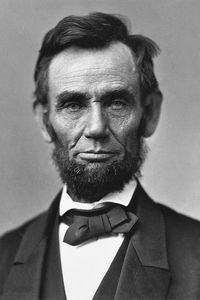Abraham Lincoln, a prominent figure in American politics, hailed from the state of Kentucky, where he would go on to make a lasting impact on the nation's history. As the second presidential candidate of the newly formed Republican Party, following in the footsteps of John Charles Frémont, a renowned explorer and politician in his own right, Lincoln's political career was marked by a series of significant milestones.
From 1861 to 1865, Lincoln served as the President of the United States, a tenure that coincided with the tumultuous period of the American Civil War. During his time in office, Lincoln faced numerous challenges, including the secession of several Southern states and the devastating conflict that resulted from the war. Despite these obstacles, Lincoln remained steadfast in his commitment to preserving the Union and ending the institution of slavery, a goal that he believed was essential to the future prosperity and unity of the nation.
Tragically, Lincoln's life was cut short in April 1865, when he was assassinated by John Wilkes Booth, a well-known actor and Confederate sympathizer. This devastating event marked the first time in American history that a sitting president had been assassinated, a somber milestone that would be followed by the deaths of three more presidents during their term in office. Despite the tragic circumstances of his death, Lincoln's legacy continues to endure, a testament to his unwavering dedication to the principles of liberty and equality that he believed were essential to the success of the United States.










